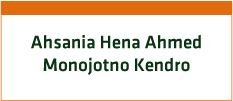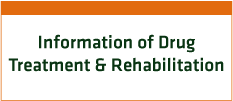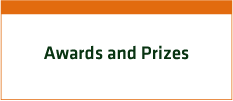Research Agency to Support the Roll-Out of “Strong Families” – a Family Skills-based Programme as part of UNODC Project on Countering the Threats of Drugs and Crime in Cox’s Bazar
In 2019, UNODC has signed a contract with Dhaka Ahsania Mission (DAM) for conducting the pilot under the United Family Skills Programme, Tejgaon Govt. High School at Dhaka, Bangladesh. The Project was implemented by jointly with Dhaka Ahsania Mission and Ministry of Education, Republic of Bangladesh Government.
After successful completion of the Family UN-ited piloting project, recently UNODC has signed another contract named “Research Agency to Support the Roll-Out of “Strong Families” – a Family Skills-based Programme as part of UNODC Project on Countering the Threats of Drugs and Crime in Cox’s Bazar” to implement another similar family skill programme among the Forcibly Displaced Myanmar Nationals (FDMNs) from Myanmar, who are living in Cox’s Bazar (CXB), Bangladesh. The contract was signed on the 8th of October 2020.
The named “Research Agency to Support the Roll-Out of “Strong Families” – a Family Skills-based Programme as part of UNODC Project on Countering the Threats of Drugs and Crime in Cox’s Bazar” was successfully started in November, 2020 at Camp 13, Ukhiya, Cox’s Bazar.
The Strong Families Programme is designed to assist families in low resource areas to deal with the associated challenges. Both adults and children often deal with the effects of high unemployment and overcrowding as well as lack of safe housing and conflict in the family and neighborhood. Sometimes lack of adequate money makes it difficult to provide even basic food for survival. The added stress for caregivers and their children can cause anxiety and depression, trouble sleeping and increased irritation or anger. They learn that the better they as adults can learn to manage their own stress, the better the children will do.
Content of the training was-
|
Pre Caregiver session > Our family Strength > Understanding Children’s Stress > Tapping to Relieve Stress > Challenges for caregiver > Slow and Gentle breathing |
Caregiver session 1 > Qualities for our Children > Importance of love and limits > Showing love by listening > Handling of your own stress |
Caregiver session 2 > Helping Your Children Do What They’re Supposed to > Encouraging Good Behavior (Compliments, positive attention, clear messages) > Misbehavior (Ignoring, taking away privileges, extra chores) > Thinking of your Children’s strengths |
|
|
Child session 1 > Get Acquainted Game > Balloons in the Air Game > Understanding Stress > Thinking of Your Own Stress > Learning to Calm Yourself > Thinking of about Happy Times > Ways of Handling Stress |
Child session 2 > What are Children’s Responsibilities > What are caregivers Responsibilities > Balloons in the Air > Qualities to Reach Your Dreams > Appreciating Parents |
|
|
Family session 1 > Get Acquainted > Children share stress pictures > Understanding Each other’s stress > Children share Happy Times Pictures > Gentle Breathing Practice > Sharing Ways to Reduce Stress |
Family session 2 > What Do we have in Common > Qualities Children and Caregivers Value > Sharing Rules with Children > Our Family Values > Reaching our Dream Game > Sharing Appreciations
|
As per the project design 11 families were selected through providing the information about the training. Interested families were invited to attend the training. Before attending the training first measure was collected from the families on the 15th of October by the Research Assistants at Camp 13. After getting the pre measure the training session of family UN-ited piloting programme had started.
On the 5th of November a meeting between Md. Shahedul Haque, Project Coordinator, Md. Amir Hussain, lead training facilitation and research of the project and Shah Mohammad Naheeaan, National Program Officer, UNODC and the Video documentary team members was held at DAM Health Sector Office at Shyamoli, Dhaka. How to overcome the hurdles to make the documentation of the Strong Families Program as required by UNODC and what kind of support would be needed from DAM was discussed elaborately in the meeting. All sort of corroboration was ensured from DAM side to successfully complete the documentary.
On the morning of 7th November the inauguration of Strong families Program was held successfully at CIC Conference room, Camp 19. Mr. Shah Rezwan Hayat, Honorable Commissioner, RRRC was present as Chief Guest in the Program. Mr. Somen Mondal, Assistant Director of Department of Narcotics Control, Cox’s Bazaar, Mr. S M Naheeaan, National Program Officer, UNODC, Mr. Abu Toha, Health Coordinator, RRRC and Mr. Nazrul Islam, Camp in Charge, camp 19 were also present as special guests.
It was discussed elaborately about the effect and outcome of the Strong Families Program in the Rohingya Camps. Some suggestions were given by the Government Officials in this regard. The Commissioner, RRRC, advised to implement the program in more Camps and involving the Host community if possible. To him, it will help to eradicate the depression, crime and drugs problem in this troublesome domain.
On the 2nd of November the first session of the first cycle of the Strong Families Program was successfully started. It was the pre caregiver session where a total of 100 participants from 50 families where 67 males and 33 females were present.
On the 12thof November the second session of the first cycle of Strong Families Program was implemented successfully. 400 participants from 50 families were present in this session. Altogether there were 200 caregivers and 200 children where 183 female and 217 male attained the session.
The last session of first cycle of Strong Families program was held on 18th of November. It was successfully conducted. In this session, there were 400 participants from 50 families where 200 caregivers and 200 children were present. In the total group there were 220 males and 180 females.
Third measure was taken on 50 families along with data entry on 29th of November. 100 caregivers were present.
Mr. S M Naheeaan, National Program Officer, UNODC was present at the last session. A brief discussion was held between Mr. Naheeaan and some of the participants regarding the benefits and outcome of the Programme. The participants show exuberance during the discussion. Some parents say, the program was really helpful for them to develop a positive and good relation with their children. They suggested continuing the program if possible in different families in all the Camps.
The children were very responsive and spontaneous during all the sessions.
Challenges:
Under the real context it comes out that it is cumbersome to work with the Rohingya, the Forcibly Displaced Myanmar Nationals (FDMNs) from Myanmar.
- One of the main reasons is of that the language barrier. Working with translator/interpreter is time consuming and steep to make the target community subjugate the subject-object of the program.
- Children’s were very inattentive in sessions, their concentration and understanding level is poor.
- Adult were also not very responsive. Especially the females were not interested to talk in the sessions.
- In the camps finding rooms for session was a difficult task and the sizes of the rooms were not session friendly.
- Material uses and performing activities were very challenging except balloon activities. Except balloon activity in other material sessions they were not very spontaneous and interactive.
Lesson Learned:
Through the implementation of the United Family Skills Programme in Forcibly Displaced Myanmar Nationals (FDMNs) from Myanmar at Cox’s Bazar has got lesson in training sessions which will help them to understand while conducting the Strong families Programme.
- Considering the training room availability and their size 10 families will be the standard for each room and group. 80-90 families are standard of this context.
- Will rearrange the session activities during session by following the main objective of the modules. It will help them to engage more in the sessions.
- Will involve the teachers as facilitators who are working with different learning centers in Rohingya camps. It will help to minimize the time during sessions and will also reduce the number of translators.
Conclusion:
In this unprecedented time of pandemic, completing the first cycle and piloting of Family United program was a big challenge from the beginning but the Facilitators and the Staffs of DAM has put in their best endeavor to work with the Rohingya (FDMNs) community under the Strong Families Program following strictly the UNODC protocol and pursue the goal and to find the outcome of the program.






